Met Police Commissioner: Who will be Britain's next top cop?
- Published
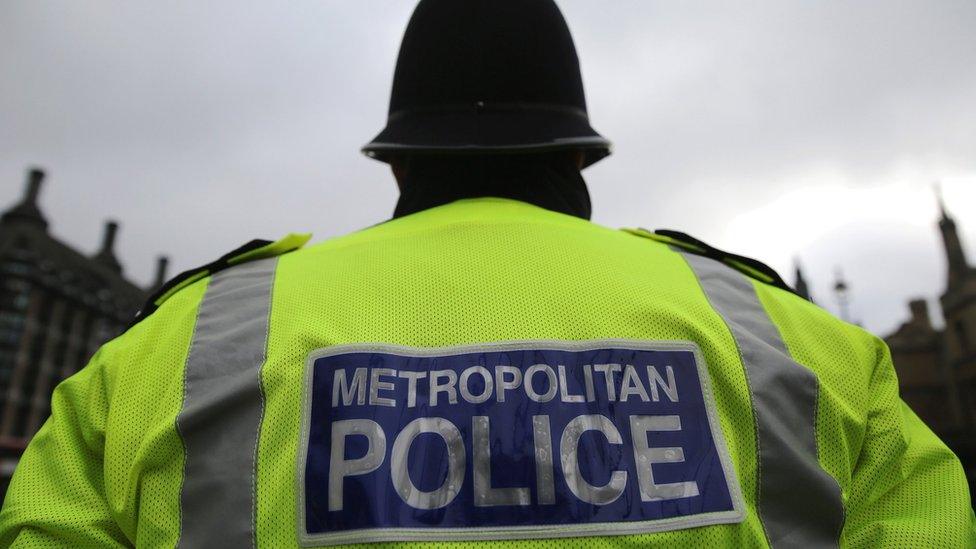
The UK's next top police officer will be chosen on Wednesday.
The final four candidates for Metropolitan Police Commissioner will face interviews with Home Secretary Amber Rudd, Mayor of London Sadiq Khan and Policing Minister Brandon Lewis.
The Commissioner is not only the head of policing in London. He or she also has a range of national responsibilities including leading on counter-terrorism, national security policing, protection of the royal family and parliamentarians and major public events.
That means the job is not just about how to deploy the 31,000 police officers across the capital - but also how to deal with the complex challenges of keeping Britain and London's streets safe.
So who are the final four candidates for one of the toughest jobs in policing anywhere in the world?
Cressida Dick
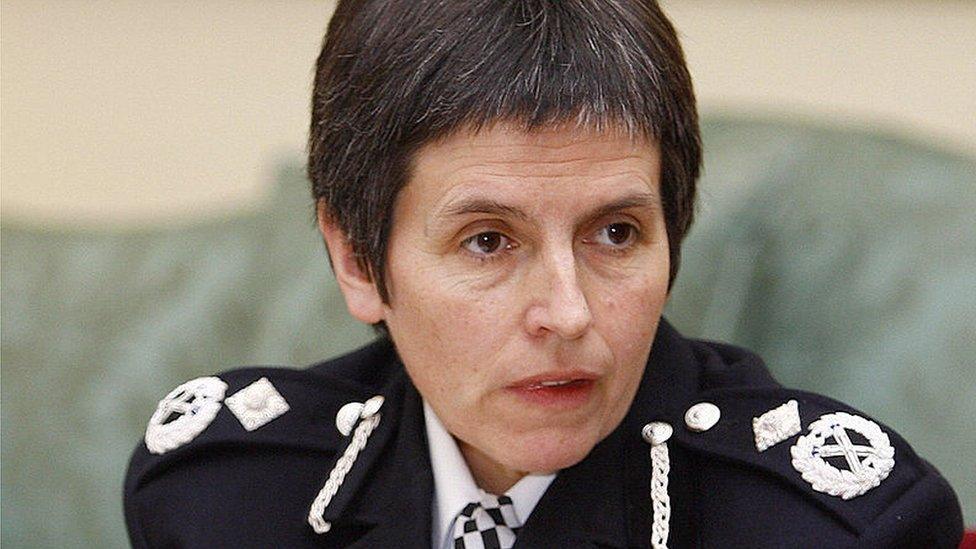
Cressida Dick is one of the country's most experienced and well-known chief police officers who isn't actually working as one.
In 2014 she left Scotland Yard to take up a highly sensitive and undisclosed director-general post at the Foreign Office.
If the 56-year-old is selected to be the next commissioner, it will mean for the first time that all three top policing jobs in the UK are held by women: the Met Commissioner, the head of the National Crime Agency and the president of the National Police Chief's Council.
Ms Dick joined the Met in 1983 after graduating from Oxford University. She first came to public prominence when she was the senior officer in charge of the operation in July 2005 that led to the mistaken killing of Jean Charles de Menezes as a suspected suicide bomber.
When the force was later prosecuted for breaching health and safety laws, the jury in the case said they believed there was "no personal culpability" for then Commander Dick after listening to her evidence.
In 2009 she became the first woman to be appointed an assistant commissioner in the Metropolitan Police, becoming the national lead for counter-terrorism across the UK.
Her other experience includes taking on internal reforms of Scotland Yard and being one of the two senior officers in charge of security at the London 2012 Olympic Games.
Sara Thornton
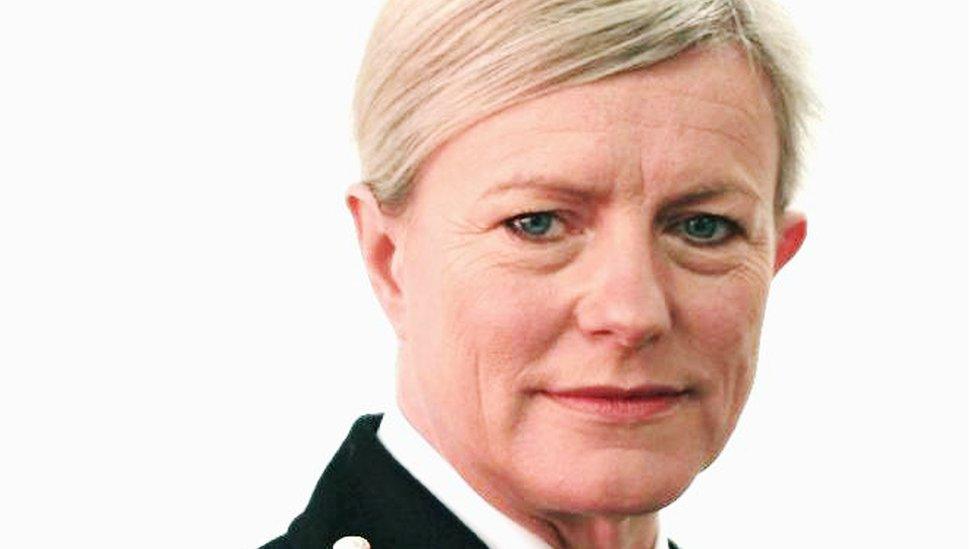
Sara Thornton became the first chair of the National Police Chiefs' Council (NPCC) in 2015 when it replaced the Association of Chief Police Officers (Acpo).
It is the co-ordinating body for all of the police forces in England and Wales, bringing together all the chief officers to thrash out national policies on everything from investigating murders to modernising the workforce.
That means that she has been at the heart of the extremely complex challenges of changing the way police are recruited, trained and prepared for how their role is changing as crime does in the 21st century.
She joined the Metropolitan Police in 1986 after studying at Durham University and in 2000 went to neighbouring Thames Valley Police as an assistant chief constable. Seven years later she was made chief constable before becoming vice-president of the NPCC in 2011.
Shortly after taking over at the NPCC she warned that in the future the public should not expect to see a police officer after some burglaries.
She told the BBC that budget cuts and the changing nature of criminality meant the police had to prioritise and there had to be a conversation with the public about where limited police resources should be focused.
Stephen Kavanagh
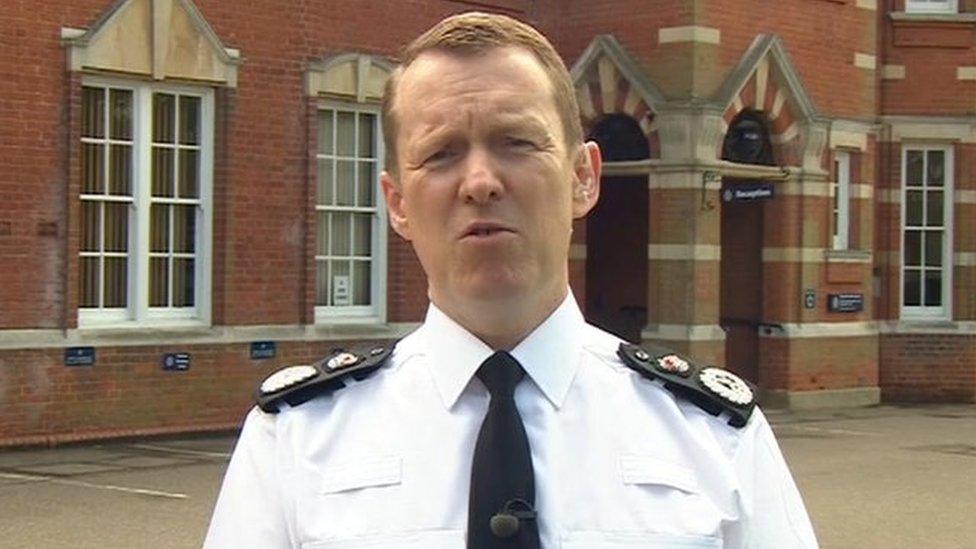
Stephen Kavanagh is the chief constable of Essex. He began his policing career with the Metropolitan Police Service in 1985 as a constable in Leyton in East London.
As a detective sergeant he worked in homicide and the then anti-terrorist branches and rose up the ranks to become area commander for North London.
Before that, he was part of the team that had to come up with the force's action plan and response to the Stephen Lawrence inquiry, which had branded the Met institutionally racist.
His other roles inside Scotland Yard have included working as a commander in counter-terrorism after the 2005 attacks on London and designing anti-corruption plans to root out crooked officers.
In 2011 he became the public face of the Metropolitan Police during the August riots that followed the shooting of Mark Duggan. As deputy assistant commissioner he also had responsibility for the politically-charged investigations into phone hacking and payments to public officials by journalists.
Mark Rowley
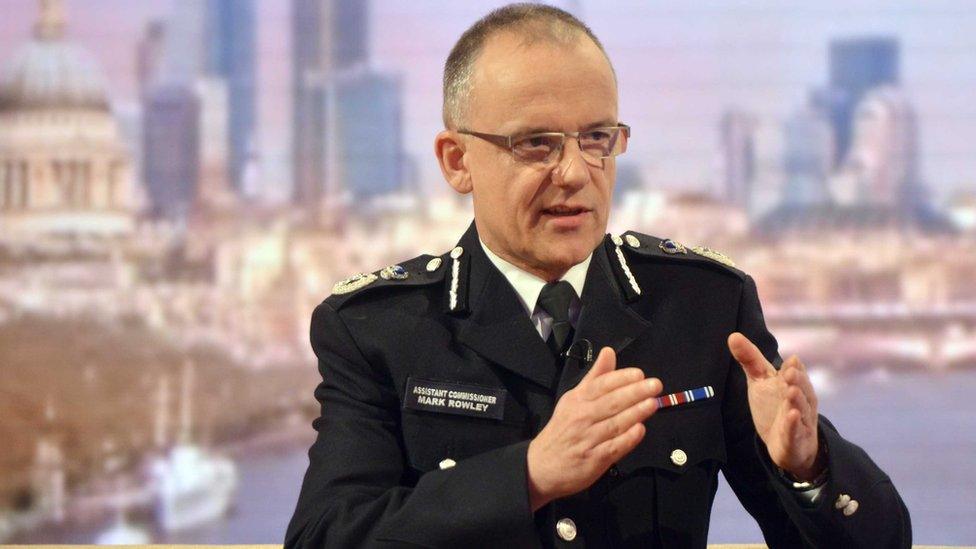
Mark Rowley is the only one of the four candidates currently working inside Scotland Yard - and the only one to have started his career with another force.
After graduating from Cambridge, he joined West Midlands Police in 1987 and, after serving as a detective, joined the then National Criminal Intelligence Service, one of the predecessors of the National Crime Agency.
While he was there, Mr Rowley worked on developing covert techniques to target major organised crime gangs that work across the UK and other countries.
In 2009 he was appointed chief constable of Surrey, nine years after joining the force and having been in the chair temporarily since 2008.
Two years later he was recruited to the Metropolitan Police as an assistant commissioner - the rank inside the force broadly equivalent to a chief constable outside of London.
During his five years inside Scotland Yard he has been one of the public faces of the force. He has talked widely about terrorism threats - including the changes to counter-terrorism strategy in the wake of the Paris attacks.
When an inquest jury concluded that Mark Duggan had been lawfully killed by firearms officers in 2011, AC Rowley was the officer who gave a statement outside the court amid a barrage of chants from the dead man's supporters.
- Published29 September 2016
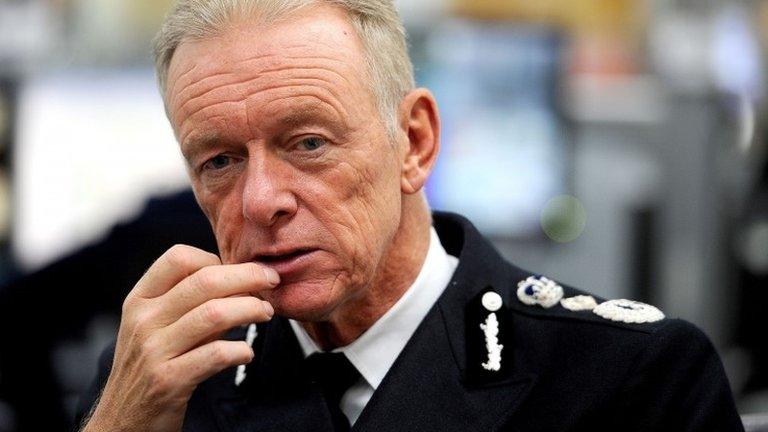
- Published16 November 2016
